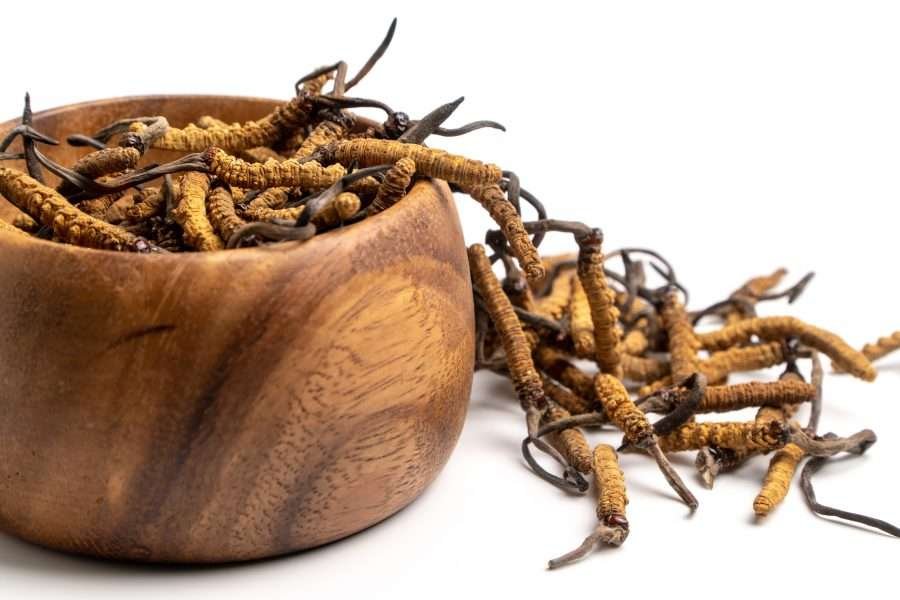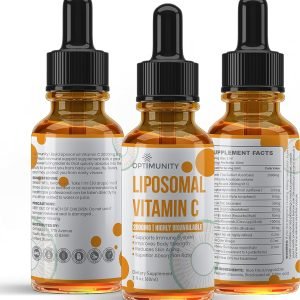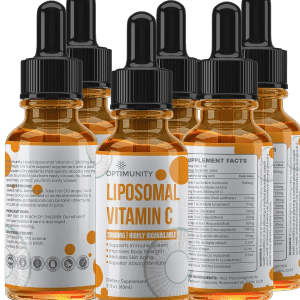
The immune system is widespread and complex, unlike other systems in your body. There are no distinct organs and tissues. Scientists do not even fully understand how the immune system operates and how we can fully utilize it to fight invading microorganisms.
However, researchers have learned some things about the immune system so far.
One of these things is that you can carry out activities that improve its functions.
A strong immune system will help you fight off pathogenic bacteria before they can cause any damage and make you fall sick.
While you can do things like sleep for 8 hours daily, manage your stress levels, and exercise regularly, one of the most important strategies you can take to improve your immune system is to feed it with healthy substances.
In this article, we’re going to look at how you can use plants to boost your immune system – the 100% natural way.
Why Are Plants Important in Boosting the Immune System?
Many people spend their entire lives eating terrible food – foods that are high in carbs and the calories are all over the roof.
Although these foods might taste delicious, they do you more harm than good.
A study published in the Journal of Traditional Chinese Medical Sciences showed that children who ate processed foods with high sugar content without healthy foods like vegetables were more likely to suffer from respiratory infections.
However, when you increase the number of herbs, spices, and vegetables you take, your immune system will experience a boost.
One property most plants have is high fiber content. You need fiber for a healthy gut microbiome. It helps flush out the harmful bacteria present in your gastrointestinal tract.
A healthy gut contributes to a healthy immune system, as 70% of your immune system resides in your gut.
So, let’s take a look at vegetables you should include in your diet to bolster your immune system.
Astonishing Herbs that boost immune system.
1. Mushrooms

We barely see people eat mushrooms, but they have been useful for fighting infections for centuries. Alternative and Eastern medicine practitioners have used them, even before modern-day researchers started seeing the light.
Mushrooms contain phytonutrients such as beta-glucans that play a great role in supporting your immune system.
Beta-glucans are sugars (polysaccharides) that are found in the cell walls of mushrooms.
According to a study published in the Journal of Hematology and Oncology, they contribute to a healthy immune system by activating immune cells that target pathogenic microorganisms or invaders.
Any edible mushroom will provide you with the immune-boosting benefits of beta-glucans, but you’ll get the most benefits when you take maitake, shiitake, lion’s mane, oyster, and turkey tail mushrooms. Some of them even contain vitamin D they’ve absorbed from the ultraviolet rays of the sun.
A review in Integrative Medicine: A Clinician’s Journal showed that a particular type of mushroom, Reshi, boosts your immune system by increasing the activity of your immune cells and the number of cytokines produced.
Sadly, you won’t find Reishi in most grocery stores. So, you’ll have to do with anyone you see.
2. Cordyceps.

Cordyceps is not technically an herb, but it is a fungus with immune-boosting properties. It has been used in traditional Chinese medicine to deal with various diseases and help with fatigue.
How does cordyceps work for your immune system?
Cordyceps work by improving your natural killer cells and macrophage activities. So, your body can now fight cancer cells and other harmful invaders.
It also has immunomodulation properties and offers resistance to stress.
To get the best from cordyceps, you can start by taking 450mg per day. You can then move up to 900mg depending on how much your body needs.
3. Garlic.

Many people have garlic in their homes. They either eat it raw after peeling off the covering, or they use it as a spice in their foods.
This is because garlic is a powerful plant that helps your immune system fight invaders.
Let’s show you how it works.
Garlic contains a compound known as alliin. When alliin is crushed, it quickly turns into allicin, which happens to be the main active ingredient in this plant. Allicin contains Sulphur – the reason for the distinctive taste and smell of garlic.
But allicin doesn’t remain in that state for long. It is an unstable compound, so it quickly converts to other Sulphur compounds which have the immune-boosting properties.
These compounds work on your immune system by increasing the immune response of some white blood cells when viruses invade your body.
It has been known to fight viruses that cause common flu or cold.
A study carried out on 145 healthy volunteers showed that when a group took garlic supplements for three months, they had a 63% lower risk of getting a cold and their colds were 70% shorter than those who only took placebos.
However, it is unknown if taking garlic consistently is better than taking it only when you start falling sick, or if they both have the same effects.
To get the best from garlic, don’t throw it into the hot soup immediately (if you’re using it as an ingredient). Heat kills the enzyme, which converts alliin to allicin.
Instead of heating directly after peeling, you can crush it first and allow it to stand for 10 minutes to prevent losing all its health properties.
Also, try to take as much garlic as possible when cooking it. This will make up for all the medicinal properties lost during cooking.
4. Ginger

Ginger has been used as a remedy for cold and flu for many years. Instead of giving modern medications when children fell ill, many grandmothers prepared concoctions to help with the cold or flu – natural remedies.
And they worked.
These mixtures usually contained ginger, the infection-fighting, immune-boosting ingredient.
Apart from helping to fight infection, ginger also has health benefits like improving skin and hair.
But, we’re here to see how Ginger helps with your immune system.
It contains nutrients such as vitamin B6, magnesium, and manganese. Vitamin B6 is a well-known vitamin for improving the immune system function, helping you prevent cellular damage and microbial attack.
The active ingredient in ginger is Gingerol, a compound that supports the immune system. It has anti-inflammatory and antimicrobial properties that help you fight off infections.
So, by taking ginger regularly, you can be certain that your body is strong enough to kill the pathogens before they make you sick.
The best way to take ginger is either to eat it raw or add it directly to your food and drinks
However, don’t eat ginger too much because it is warm and may cause problems with your digestive system. Just eat about 4 grams of ginger daily and you’ll get the ingredients you need.
5. Turmeric.

Turmeric is another herb that works well to keep your immune system in better fighting conditions.
Turmeric contains a compound known as curcumin.
Curcumin is a phyto-derivative which has healing properties. It has antibacterial, anti-inflammatory, and antiseptic properties.
Because turmeric only contains 3 to 5% of curcumin, you need to take a lot of it to get enough curcumin to boost your immune system.
Here are the full benefits of curcumin –
- Deals with respiratory problems like sinusitis by building your immune cells.
- Cleanses the respiratory tract and uses anti-inflammatory properties to fight infections and relieve you from cold and flu symptoms.
- Has antiviral properties that prevent the replication of viruses in your body. So, your immune system only has to fight a small viral load.
- It reduces inflammation caused by viruses and provides relief from various symptoms.
- Deals with upper respiratory tract problems like shortness of breath, bronchial asthma, congestion of airways and nostrils due to inflammation, and cough.
6. Broccoli sprouts

Some people eat adult broccoli plants.
But, it may surprise you to know that the most benefits come from the sprouts. Broccoli sprouts (from the baby plants) contain a phytonutrient known as sulforaphane.
Sulforaphane is an anti-inflammatory compound that is also found in vegetables like cauliflower and Brussels sprouts.
When you take these sprouts, you have an increased anti-inflammatory effect in your upper respiratory system. So, sulforaphane from this plant will help you deal with organisms that cause inflammation and also relieve the symptoms they cause.
A study published in the journal PLoS One suggested that people who drink shakes containing broccoli sprouts rich in sulforaphane experience better defense against the flu virus.
In the study, it was observed that when a group of people who had been taking broccoli shake was administered a live flu vaccine in their nostrils, they showed lower levels of the flu virus in their nasal fluids when compared with those who had been taking shakes containing alfalfa sprouts.
So, make a recipe with broccoli sprouts to get the best immune-boosting benefits. You can add it to your salads or blend it well to make smoothies and shakes mixed with other immune-boosting ingredients.
7. Japanese Knotweed.

From the name, you can easily tell that this plant originates from Japan.
So, how does it help your immune system?
This plant contains a chemical compound known as “resveratrol”.
Resveratrol is usually used in wine production. It is well-known for its antioxidant properties. It helps fight free radicals produced naturally by your body, thereby preventing oxidation and cellular damage.
It also has antibacterial properties, which it uses to remove dangerous bacteria from your gut microbiome. Remember, your gut is where the majority of your immune system lies. So, by helping you get a healthy gut, it also improves your immune system.
Apart from the antibacterial and anti-inflammatory properties, Japanese knotweed is also known to improve heart health.
8. Chinese Skullcap.

Chinese skullcap is a plant from the mint family.
When you hear ‘mint’, you know it’s going to be helping you deal with the cold and the flu.
It has been used for centuries in Traditional Chinese Medicine to remove phlegm.
It has antimicrobial and anti-inflammatory effects. So, while helping you fight disease-causing microorganisms, it also relieves you of symptoms caused by existing microorganisms.
A study published in the Journal of Ethnopharmacology suggested that Chinese skullcap could help decrease the expression of pro-inflammatory cytokines that cause inflammation and lowers the immune system’s response to pathogens.
Another study published in the Journal of Complementary and Traditional Medicine showed that this plant is effective in inhibiting the growth of bacteria like coagulase-negative staphylococci and Helicobacter pylori.
Take about 450mg of Chinese skullcap daily to get the most immune-boosting benefits from it.
If you feel like your immune system needs a boost due to environmental pressure or other factors, you can take the 450mg of Chinese skullcap twice daily.
9. Andrographis.

Another herb with immune-boosting properties is Andrographis paniculata. This plant which is native to South Asian countries like Sri Lanka and India work by stimulating the immune system.
It has been used for many illnesses such as common cold, infection of the throat and tonsils, inflammatory bowel diseases like ulcerative colitis, and osteoarthritis.
Although there is no good scientific backing behind the efficiency of this plant, people have used it for centuries to cure diseases and it works.
According to a study in the journal Phytomedicine, patients who take Andrographis experience relief from symptoms such as tiredness, sore throat, nasal secretions, and sleeplessness when compared to people who took placebo after only two days of taking it.
After four days of taking Andrographis, all the symptoms such as headache and cough had decreased.
According to WebMD, you can take about 200mg daily for five days if you want to treat common cold.
10. Astragalus.

Astragalus is an herb that has been used in Chinese medicine for a long time. It has both antibacterial and anti-inflammatory properties.
Studies show that the roots of astragalus can boost the body’s resistance to infection. Another study carried out on animals also showed that this herb helps regulate the body’s immune response, allowing it to target invading microorganisms and defend the body from infection.
In March 2020, researchers tried to see if astragalus will prevent COVID-19 infection, however, there’s no evidence of its effectiveness against the virus yet.
The appropriate dosage to take depend on several factors such as your age and health. Pregnant or nursing women should not take astragalus root.
Conclusion.
Adding herbs and healthy foods to your diet will go a long way in boosting your immune system and preserving your health.
You shouldn’t only take them when there’s an outbreak like the coronavirus. It should become a regular thing, and you’ll enjoy a better life.
Remember, herbs don’t work alone. You also have to eat a healthy diet, sleep well, exercise, manage your stress levels, and use supplements wisely.











